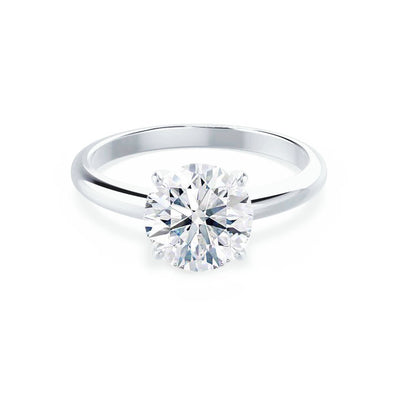It has become a major consideration in various aspects of life, including fashion, food, and even jewelry. Among these, sustainable engagement rings have been gaining increasing attention, reflecting a shift in consumer priorities towards ethical and environmentally friendly choices. As more couples seek to make conscious purchasing decisions, sustainable engagement rings offer an appealing alternative to traditionally mined diamonds and metals, ensuring beauty without compromise.
The Environmental and Ethical Concerns of Traditional Rings
Traditional engagement rings, particularly those featuring natural diamonds, often come with significant environmental and ethical concerns. Diamond mining requires extensive land excavation, leading to deforestation, habitat destruction, and soil erosion. Moreover, the mining process consumes large amounts of water and energy, contributing to greenhouse gas emissions.
Beyond environmental concerns, ethical issues also play a significant role in shifting consumer preferences. The diamond industry has long faced scrutiny over conflict diamonds, also known as “blood diamonds,” which are mined in war zones and sold to finance armed conflicts. Despite regulations like the Kimberley Process, reports suggest that conflict diamonds still find their way into the market. Additionally, many mining operations exploit workers, subjecting them to unsafe conditions and unfair wages.
The Rise of Lab-Grown Diamonds and Ethical Sourcing
In response to these concerns, lab-grown diamonds such as designs by ethical jewellery from Lily Arkwright. These diamonds are chemically, physically, and optically identical to mined diamonds but are created in controlled environments using advanced technological processes. Lab-grown diamonds require significantly fewer natural resources, generate less environmental damage, and eliminate the ethical concerns associated with traditional diamond mining.
Another approach to sustainability in engagement rings is the use of ethically sourced diamonds and recycled metals. Some jewelers ensure their diamonds are sourced from conflict-free regions with transparent supply chains. Recycled metals, including gold and platinum, help reduce the demand for newly mined materials, further lessening the environmental impact. These sustainable options enable consumers to make responsible choices without sacrificing quality or beauty.
The Appeal of Sustainable Engagement Rings
The growing demand for sustainable engagement rings is not solely driven by ethical and environmental concerns. Many couples find the uniqueness and personal significance of sustainable rings appealing. Lab-grown diamonds often offer better value for money, allowing buyers to afford larger or higher-quality stones compared to their mined counterparts. Additionally, the customization options for sustainable rings are vast, enabling couples to create meaningful, one-of-a-kind designs that align with their values.
Brands specializing in sustainable jewelry are also focusing on transparency, providing detailed information about their sourcing and manufacturing processes. Consumers appreciate the ability to trace the origins of their rings and support companies that align with their ethical standards. This transparency fosters trust and strengthens the emotional connection between the buyer and their purchase.
Leading Brands in the Sustainable Jewelry Market
Several jewelry brands have embraced sustainability, offering engagement rings that are both ethical and elegant. Companies like Brilliant Earth, Vrai, and Clean Origin focus on lab-grown diamonds and recycled metals, ensuring their products adhere to strict environmental and ethical standards. Many of these brands also contribute to social and environmental initiatives, reinforcing their commitment to sustainability.
Luxury brands are also recognizing the importance of ethical sourcing. Major jewelry houses like Tiffany & Co. and De Beers have implemented sustainability initiatives, including responsible diamond sourcing and carbon-neutral operations. As awareness grows, more jewelers are expected to adopt sustainable practices, making ethical engagement rings more accessible to a wider audience.
The Future of Sustainable Engagement Rings
The shift towards sustainable engagement rings is more than just a passing trend; it represents a fundamental change in consumer attitudes and industry practices. As technology advances, lab-grown diamonds will become even more refined and affordable, making them an increasingly attractive option. Likewise, ethical sourcing and recycled materials will continue to gain traction, pushing the jewelry industry towards a more responsible future.
With growing consumer demand, stricter regulations, and increased transparency, sustainable engagement rings are poised to become the standard rather than the exception. As more couples embrace the idea that love should not come at the expense of the planet or human rights, the popularity of sustainable engagement rings will only continue to rise.
Conclusion
The growing popularity of sustainable engagement rings is a reflection of changing consumer values and increased awareness of environmental and ethical issues. Whether through lab-grown diamonds, ethical sourcing, or recycled metals, sustainable rings offer a responsible alternative without compromising on beauty or quality. As the jewelry industry evolves to meet these demands, sustainable engagement rings are set to redefine the tradition of expressing love and commitment, ensuring that future generations can continue to cherish meaningful and ethically sourced symbols of love.

